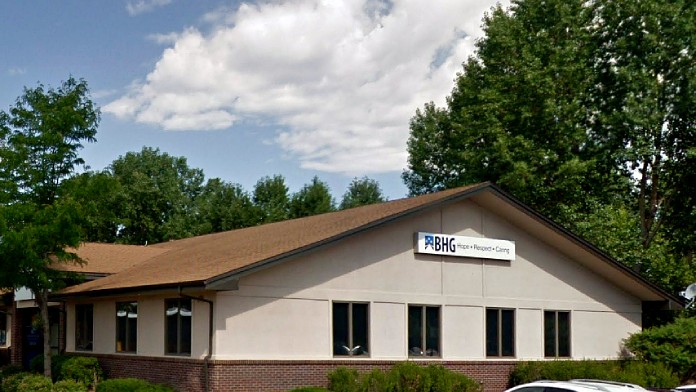BHG Fort Collins

About BHG Fort Collins
Known for its strong outdoor recreation culture, Fort Collins, Colorado, is home to BHG Fort Collins. As part of the largest outpatient opioid treatment center network accredited by The Joint Commission, they offer specialized approaches, including medication assisted treatment (MAT).
They welcome adults, providing comprehensive opioid addiction and co-occurring disorder treatment. They accept multiple insurance forms, including TRICARE, Medicare, and Medicaid. Self pay plans are also available.
Medication Assisted Treatment in Fort Collins
You can access MAT with Suboxone or methadone. These FDA-approved medications alleviate cravings and withdrawal symptoms that can hinder recovery. They complement care with group and individual therapy and other expert backed approaches to promote lasting recovery.
Their customized case management services can be effective. You’ll benefit from ongoing assistance to improve other essential life aspects, such as vocational skills, parenting, legal problems, and medical issues. One former client gushed, “The people here really do care and are here for you. I would recommend BHG to anyone with a drug dependency. They changed my life for the better.”
An Extended Treatment Network
I also think it’s beneficial that they have multiple locations. With an extended treatment, you can access flexibility with your medication and administration methods. You’ll have the option to continue care seamlessly, whether relocating or traveling.
Their family services include interventions, and they work with your loved ones to understand recovery. Your loved ones are part of your therapeutic team while learning more about relapse prevention and navigating recovery. You and your family benefit from improving communication skills and strengthening relationships.
After sessions, you and your family can partake in local attractions to unwind and find healthier outlets for stress. Lory State Park, Horsetooth Reservoir, and Horsetooth Mountain Park are not too far away for hiking and appreciating nature.
| Levels of Care | Detox Service Setting | Programs | Payment Options |
|---|---|---|---|
|
Inpatient and residential programs provide round-the-clock medical and emotional support as you live at the treatment facility. This level of care may be recommended if you have severe addictions or mental health conditions since it removes outside distractions and allows you to focus solely on therapy. |
In outpatient therapy, you’ll attend therapy sessions several times each week while living at home. This is ideal if you have a strong support system and a lower risk of relapse. Outpatient treatment offers flexibility to maintain work, school or family obligations. |
||
|
Inpatient detox occurs in a dedicated treatment facility. You’ll live there around the clock and receive intensive medical support and supervision to help manage your withdrawal symptoms. It is suitable for individuals with moderate to severe addictions as it ensures a stable detox environment. |
Outpatient detox gives you access to medically supervised withdrawal services while still allowing you to live at home. You’ll attend a clinic for treatment and monitoring. This flexible option is suitable for those with mild to moderate withdrawal symptoms who have strong support systems. |
||
|
Alcohol detox programs offer medical support to help individuals withdraw safely from alcohol. Your care team may use medications to ease your symptoms and provide medical monitoring to address complications. |
Drug detox programs support individuals who are withdrawing from addictive substances like cocaine and heroin. Medical support helps you manage symptoms in a controlled and safe environment so you can achieve initial sobriety. |
||
|
Private Insurance
|
Self Pay
|
Levels of Care
Inpatient and residential programs provide round-the-clock medical and emotional support as you live at the treatment facility. This level of care may be recommended if you have severe addictions or mental health conditions since it removes outside distractions and allows you to focus solely on therapy.
In outpatient therapy, you’ll attend therapy sessions several times each week while living at home. This is ideal if you have a strong support system and a lower risk of relapse. Outpatient treatment offers flexibility to maintain work, school or family obligations.
Detox Service Setting
Inpatient detox occurs in a dedicated treatment facility. You’ll live there around the clock and receive intensive medical support and supervision to help manage your withdrawal symptoms. It is suitable for individuals with moderate to severe addictions as it ensures a stable detox environment.
Outpatient detox gives you access to medically supervised withdrawal services while still allowing you to live at home. You’ll attend a clinic for treatment and monitoring. This flexible option is suitable for those with mild to moderate withdrawal symptoms who have strong support systems.
Programs
Alcohol detox programs offer medical support to help individuals withdraw safely from alcohol. Your care team may use medications to ease your symptoms and provide medical monitoring to address complications.
Drug detox programs support individuals who are withdrawing from addictive substances like cocaine and heroin. Medical support helps you manage symptoms in a controlled and safe environment so you can achieve initial sobriety.
Contact

Mariah Bourne earned a Master of Arts in Community Social Psychology from the University of Massachusetts Lowell. She has worked as a research associate on addiction and treatment studies, including opioid craving interventions. Today, she is a freelance writer. She’s passionate about sharing knowledge and resources to help others start their recovery journey.

Peter W.Y. Lee is a historian with a focus in American Cold War culture. He has examined how popular culture has served as a coping mechanism for the challenges and changes impacting American society throughout the twentieth century.




